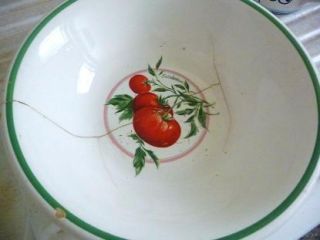OCD
Objects and Memories...and the Pain of Letting Go
Isn't That the Essential Story, Not Only for Clutterbugs and Hoarders?
Posted August 24, 2015

I’ve just published a memoir called Mess: One Man’s Struggle to Clean Up His House and His Act. It chronicles my wide-ranging project to declutter by apartment and my life. I spent much of the book also exploring the wider world of clutter and hoarding beyond my door. Besides attending hoarder peer groups, I went on the job with a foul-mouthed old pro declutterer and interviewed leading psychological experts like Randy Frost and Sanjaya Saxena. I visted the UK's "most extreme hoarder" at his astonishing home. And, as a personal act of self-archeology, I dug into my family history as embodied by the boxes of my father’s old books I kept stashed away—buried away, radioactive with ambivalence—under my girlfriend’s piano that stands by my window. ( I use the piano as an ad-hoc storage structure,)
Mess is variously described in reviews as being about clutter and hoarding. “A Hoarder’s Tale of Redemption” reads one headline.
But in essence it’s really a book about the power of objects and memories,,,, and the pain of letting go.
Isn’t that the essential story of the human psyche: the business of how to handle that pain of letting go? Of things, memories, emotions.
As an interested layman, I’m not a great fan of the DSM and its rosters of symptoms. But I think the DSM-5 gets hoarding pretty right. It’s no longer Compulsive Hoarding under OCD but is now distinct--Hoarding Disorder. And the first symptom is not excessive accumulation, it’s the incapacity to let go of things, regardless of their apparent lack of value. (That term “value” of course being a hyper-relative one).
In Mess, I describe what I went through emotionally to throw away my first meaningful object. An object dear to me which really had outlived its time. (There were many more such objects to come, as my project gathered strength .)
This debut object was a pasta serving bowl I’d hung onto it for decades—hung onto despite the hoary, dark fracture running from its rim down to the painted red tomatoes at the bottom. Talk about unwholesome, not to say unhealthy,
But oh how that bowl reminded me of—was an intimate totem of—my boho days back in the 1980’s, when I was living by myself after years of love and misery, and pouring my heart into my book Wearing Dad’s Head (I write fiction mainly), there in a tiny walk-up in downtown New York by Little Italy.
That cracked bowl was an intimate heirloom, a kitschy bearer of precious memories. We clutterbugs and hoarders seem particularly to invest objects with associations and emotion. Holding that old bowl in my hands, I held part of my past, my course through life. I saw the final night of my endless breakup with my longtime girlfriend S. in that walk-up. (I’d kept her old leather coat from college for decades on.) I saw the Smith-Corona electric on which I thundered out the manuscript of my book. And I saw the salumeria across the street from the Little Italy gift shop where I bought the bowl, and where a decade later, in the nineties, I selected the mozzarella that I brought along to my girlfriend of today, Cosima, twenty years later, on our first date.
That, please, was the Proustian lode I held in my hands in my then-grubby kitchen.
But the crack was so bad I could with little effort begin splaying the bowl in half. And repairing it would be a waste of time and effort, it didn't cost much. I could go back to Little Italy and replace it.
I was talking myself into the act. I had a sudden last desperate fear, that tossing the bowl would be throwing the memories away. But then I dared myself, and on a gust of courage, on a surge of empowering anger—to show myself I was serious about decluttering (Cosima had said she’d leave me if I didn’t “clean up”—I’d already warily attended a couple of Clutterers Anonymous sessions)—I did it.
I emphatically yanked the serving bowl in half. It broke with a snap. I wrapped the pieces in several plastic bags. If I could have, I might very well have burned the busted-up bowl and kept the ashes. (The object was still intimate to me and I wanted no one else to posses it.)
I went out into the hall and opened the garbage chute. I let go of my package. I listened to the bowl pieces clanging down away from me.
I still had my memories. I hadn't lost them. Even though I had lost this one particular evoker of them. Now those memories are with a little extra melancholy, about the bowl I'd heaved. But it was in wretched shape. And I saluted its farewell in a silent phrase in my head. Ceremonial gestures are important and helpful.
Clutterbugs can eventually let go, you see. But indeed it’s hard. And it’s almost impossible for hoarders; the process and the skill takes ages for them, if it can be done at all. This was a vital distinction I’d come to learn, between people with clutter issues and those who genuinely hoard.
But either way, it’s hard. It takes patience. And courage.


